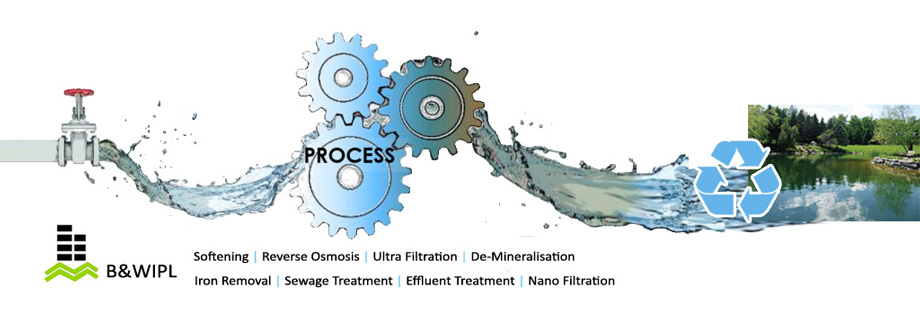The treatment of the effluent (Influent) has been the most challenging for the environmentalist. Since different effluent has the different characteristics, the treatment process will differ from place to place.
The industries such as pharmaceutical, dairy, metal, leather, food, cement, dying, mercerizing discharge abundant discharge which must be treated.
Before letting the effluent on the ground the quality and the characteristics of the effluent must be compatible to the ground. Itís BOD, COD values and PH value should be well with in the agreeable limit.
Even though the methodology of the treatment will be different from place to place the basics of the treatments more or less the same.
With the primary and secondary precipitation with the help of aeration the treatments are fine tuned with final treatments those are given here for better understanding.
Ultra Filtration
Ultra filtration is a variety of membrane filtration in which forces like pressure or concentration gradients leads to a separation through a semi permeable membranes. Suspended solids with high molecular weight will be settled and refined , as the low molecular weight solids will pass through the membrane.
This application mainly used in the industries such as chemical, pharmaceutical, food and beverages.
Nano Filtration
Nano filtration is a relatively membrane filtration process used most with low total dissolved solids (TDS) water. This process can be effective in such a way that the organic removal and softening the water.
Nano filtration is widely used in pharmaceutical, food processing and dying. Those are the field that needs this methodology.
This filtration is smaller than ultra filtration and micro filtration larger than reverse osmosis. The membranes are made from polymer thin films.
Reverse Osmosis
Effluent treatment is normally ended with R.O treatment to multiple the recycling or reuse of the effluent. This treatments end product will be used to clean the floor, toilets and gardening instead of using fresh ground water. This only saves huge quantity of ground water.
The rejective water is to be burnt at evaporators.
Zero Liquid Discharge
Zero liquid discharge is a complete process which is most beneficial to industrial segments as well as environment.
In this process to effluent is left over. This is most advance waste water treatment system and technology to purify the effluent.
The ZLD contributes to reverse of the waste water, that enables to keep the water source better, the left over will be evaporated through diesel or gas evaporator.



